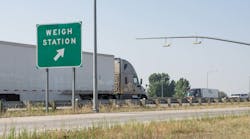I recently saw a video interview of Nikola’s Trevor Milton in which he said, “Every pound is worth 50 cents per load,” implying that every pound of freight has the same value.
It is a common mistake to take a specific operational detail and assume it is the same for everyone. In other words, for some applications, weight is critical, while for others it is nearly irrelevant.
Weight is one of the metrics that may carry more emotional value than measurable value. Andrew Halonen, founder of Mayflower Consulting and NACFE contributor, suggested we consider this scenario: does a fleet carrying furniture care about weight? Probably not because the truck often is full before it reaches its maximum weight allowance.
On the other hand, a beverage hauler that hits 80,000 lbs. all the time cares a great deal about weight because every tare pound is one less paid pound of freight.
Weight is often brought as a benefit of a new technology. The conversation really needs to focus on what applications need the weight reduction and how much weight is meaningful for that particular application.
Rick Mihelic, NACFE’s director of future technologies studies, shared a story in which a concrete manager told him that an additional quarter yard of concrete was a meaningful increment because it equals 1,000 lbs. Clearly weight is important in that type of application.
To be clear, I am not saying weight is not an important consideration. In fact, NACFE hypothesizes that weight will become more critical and impact a larger group of general freight haulers because of things like denser packaging, more product shipped on pallets, more pallets in a trailer, etc.
While we have not seen that yet, we suspect as we move into a battery electric future, that weight will become a hot topic. For electric vehicles, perhaps the meaningful weight reduction correlates to the ability to add battery modules based on what they weigh.
If they weigh 300 lbs. apiece, each fleet will have to determine the dollar value of a pound. Once they do that, they can identify the lightweighting technologies that can enable more batteries, more range and/or more payload.
I guess what I am saying is that sometimes weight matters, but not so much now as it is likely to as battery electric vehicles continue to be developed and deployed.




